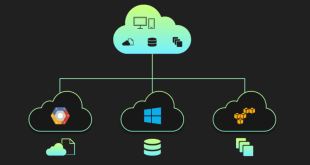In the rapidly evolving world of technology, two cutting-edge concepts have emerged to revolutionize computing as we know it: “Serverless Computing” and “Quantum Computing.” Individually, these technologies have already showcased their potential, but what happens when we combine them? Enter the realm of “Serverless Quantum Computing” – an extraordinary convergence of computational power and efficiency that has the potential to redefine the future of computing beyond the cloud.
What is Serverless Computing?
Before delving into the fascinating world of serverless quantum computing, let’s first understand what serverless computing is all about. In traditional computing, developers had to manage servers, infrastructure, and scaling, which often resulted in time-consuming and complex tasks. Serverless computing, on the other hand, abstracts away the infrastructure management, allowing developers to focus solely on writing code to run specific functions or tasks. These functions are executed in response to events, such as user actions or incoming data, without the need to manage servers actively.
What is Quantum Computing?
Quantum computing is an extraordinary leap in computational power that harnesses the principles of quantum mechanics to perform calculations exponentially faster than classical computers. Unlike classical bits, which can be either 0 or 1, quantum bits or qubits can exist in multiple states simultaneously, thanks to superposition and entanglement. This unique property enables quantum computers to explore multiple possibilities simultaneously, making them ideal for solving complex problems that are practically impossible for classical computers to handle efficiently.
The Convergence: Serverless Quantum Computing
Now, imagine combining the agility and ease of serverless computing with the supercharged computational capabilities of quantum computing. The result is “Serverless Quantum Computing” – a paradigm that promises to open up a plethora of possibilities for businesses, researchers, and technology enthusiasts alike.
Harnessing Quantum Advantage
Quantum computers possess the remarkable ability to solve problems that were once considered intractable for classical computers. From optimizing supply chains to simulating molecular interactions for drug discovery, quantum computing can bring about a significant transformation across industries. By leveraging serverless architecture, developers can access quantum computing power without worrying about the complexities of infrastructure management, making quantum advantage more accessible than ever.
Faster and Scalable Solutions
Serverless quantum computing allows for rapid scalability and resource allocation. With traditional quantum computing setups, the hardware required for quantum computations can be complex and expensive. Serverless models, however, facilitate the allocation of resources as needed, ensuring that quantum computing power can be efficiently utilized by multiple users simultaneously.
Enhanced Data Security
Quantum computing also holds the promise of revolutionizing data security. Quantum cryptography, based on the principles of quantum mechanics, can provide an unprecedented level of data encryption that is virtually unbreakable even by the most powerful classical computers. Incorporating this level of data security into serverless quantum computing applications can help safeguard sensitive information in an increasingly digital world.
Real-Time Decision-Making
In today’s fast-paced business environment, real-time decision-making is crucial for gaining a competitive edge. Serverless quantum computing can process vast amounts of data and perform complex calculations in near real-time, enabling businesses to make critical decisions with unparalleled accuracy and efficiency.
Final Words
Serverless quantum computing is an emerging technology that holds immense potential for transforming computing beyond the cloud. By combining the convenience of serverless architecture with the mind-bending power of quantum computing, we can unlock new frontiers of innovation, solve complex problems at a previously unimaginable speed, and secure our data like never before. The future of computing is evolving, and with serverless quantum computing, we are poised to make remarkable strides in our digital journey.
Commonly Asked Questions
Q1: How does serverless quantum computing differ from traditional cloud computing?
A1: Traditional cloud computing involves managing servers and infrastructure, while serverless quantum computing abstracts away these complexities, allowing developers to focus solely on writing code to execute functions. Additionally, quantum computing exponentially speeds up complex calculations, making it ideal for solving problems that are practically impossible for classical computers.
Q2: What industries can benefit the most from serverless quantum computing?
A2: Serverless quantum computing has potential applications across various industries. For example, pharmaceutical companies can use it to accelerate drug discovery, logistics firms can optimize supply chains, and financial institutions can enhance cybersecurity measures through quantum cryptography.
Q3: Is serverless quantum computing accessible to all developers?
A3: Yes, serverless quantum computing aims to make quantum advantage more accessible. Developers can leverage this technology without getting entangled in the intricacies of quantum hardware and infrastructure management, thanks to the serverless approach.
Q4: How does serverless quantum computing enhance data security?
A4: Quantum cryptography, an application of quantum computing, can provide unbreakable encryption. Incorporating this technology into serverless quantum computing applications ensures enhanced data security, safeguarding sensitive information from potential cyber threats.
Q5: What are the limitations of serverless quantum computing?
A5: While serverless quantum computing shows great promise, it is still in its nascent stages. The technology requires further advancements in hardware and software to realize its full potential. Additionally, quantum computers are sensitive to external factors, and error correction remains a significant challenge.
 webfily
webfily



